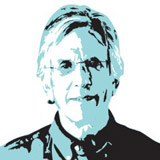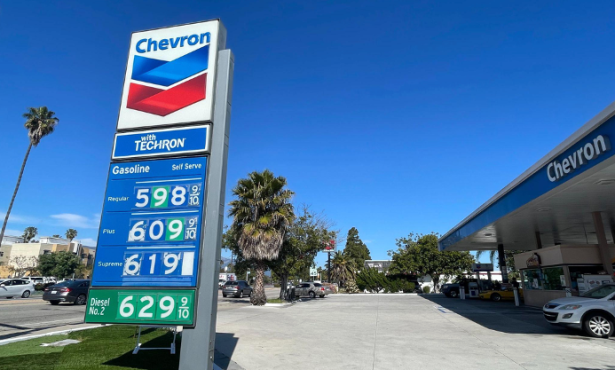Jumping Ship
The Ethics of "Hidden-City" Flights — for Passengers and Airlines
When major airline companies such as United and American Airlines publicly accused a 23-year-old, recent graduate of New York’s Rensselaer Polytechnic Institute of acting unethically and undermining their businesses, it got my attention.
What could Aktarer Zaman have possibly done to bring down the wrath of these multibillion-dollar companies? Figure out a way to electronically steal money? Take too many mixed nuts while on board? Maybe he asked for a pillow?

What Zaman did is built an air travel website and app called Skiplagged.com that helps travelers search for cheaper airfares. So what’s unethical about that service? There are scores of websites doing just that.
It all has to do with what are called “hidden-city flights.” Zaman’s website did no more than explain that by using hidden-city flights, people could get a cheaper flight. He didn’t even sell tickets. When a visitor to his website found the flight he wanted, Skiplagged.com directed them to Orbitz and other sites to buy the tickets.
Here’s the basic concept of hidden-city ticketing: You want to fly to Denver as cheaply as you can. You look up the nonstop fare from Los Angeles to Denver on a given day, and it’s $300. But a ticket on the same airlines from L.A. to Chicago, with a stop in Denver, is only $150. You buy the ticket to Chicago, but you get off the plane in Denver. You just saved $150.
Zaman did not invent or discover hidden-city ticketing; he just made it more accessible. It’s still not clear exactly how his site makes money, but it is apparently from some sort of commission from an Orbitz (which is also now suing him) affiliate program.
United and other airlines claim that this ticket practice is unethical and violates contract law. The claims under contract law made by the airlines, apparently unknown to almost every passenger (including this lawyer), are based on the fact that when we book a flight, we agree to something called “a contract of carriage.” According to a recent New Yorker article on hidden-city flights, it is “a document, dense with legalese, that can be found somewhere on an airline’s website.” This provision, the airlines claim, binds you to a contract to fly the entire trip with the airline.
You can be sure the next time I fly I’ll spend an hour or two searching for this or any other provision that may affect my so-called contract with the airlines.
As for Zaman’s ethics problem, I just don’t see it. What exactly did he do that was unethical? He’s in a contract dispute; that’s it. In a campaign to raise money to defend against the airlines’ lawsuit, Zaman wrote, “Skiplagged’s sole purpose has always been to help you become savvy travelers … by exposing pricing inefficiencies for air travel among other things.”
If you use a hidden-city ticket to get where you’re going, are you acting unethically? Not in my book.
You didn’t set the ticket price or the route for that cheaper flight. The airlines did. And how would you possibly know that you had to read some hidden language that governed how you used your ticket?
United and other airlines argue that they have organized their business around a hub-and-spoke model, and that hidden-city ticket users decrease their revenue. The airlines claim that hidden-city ticket users cause more no-shows, which may mean that a seat may go unsold. Or that the airlines, even with their state-of-the-art computers, could miscalculate how many people have to be bumped from a flight. The airlines also argue they would suffer other economic losses and that passengers may well be inconvenienced.
Get me a violin, please.
You paid for the entire ticket, so why is it your problem? You can sit in your seat the entire way or not. But if you choose to leave the plane, the airline can make even more revenue by re-selling your seat.
United spokesperson Christen David, in an email to a New Yorker writer, said that hidden-city ticketing is “tantamount to switching price tags to obtain a lower price on goods sold at department stores.”
Hardly. But David is not alone in raising the specter of economic disaster that may befall the airlines by increased hidden-city ticketing. Airline industry watchers argue that hidden-city travel could ultimately be worse for travelers, because the airlines might make have to raise prices to recoup their claimed financial losses.
Maybe the airlines should rethink their business model? They could further their charging-for-everything routine by asking for 10 bucks for seat cushions or maybe charge for toilet paper.
One travel agent executive I spoke with (who asked not to be named) was not sympathetic to the airlines: “The bottom line is that airlines don’t like losing control of a situation where they have sophisticated software that allows them to maximize their return on every flight,” he said. “[Hidden-city ticketing] doesn’t challenge that right now, but in the long term, if successful, it could. So they figure, ‘close them down now.’ Where I come from, it’s called bullying.”
The airlines themselves should look at their own business practices for ethical problems. Let’s take United Airlines’ ticket pricing in Santa Barbara. United has a monopoly on flights to San Francisco (SFO), and it can set its own prices.
On a recent weekend, for example, if you impulsively decided on Friday to take a nonstop, roundtrip United flight from Santa Barbara to San Francisco, with a return on Monday, your ticket would have cost $852.
Nope, that’s no misprint. It’s price gouging. I consider it an unethical business practice.
This outrageous price is seemingly unrelated to real costs and reasonable profits. For example, United certainly does not lower the price when fuel is cheaper.
So, I say to young Mr. Zaman, whose battle with the airlines has attracted national media coverage, “You go, young man, and keep the American spirit of open competition alive.”
And by the way, I’ll be sending you a modest donation at the website GoFundMe.com.
Readers, please note: Nothing here is intended or should be considered legal advice. The author does not advise breaking any contractual relationship with an airline or any service connected to an airline. Use hidden-city flights or anything similar to it at your own risk.
Benjamin Bycel is an attorney and writer. He was the founding executive director of the Los Angeles Ethics Commission and of the newly reconstituted Connecticut Ethics office. He serves as an expert witness in cases dealing with political and legal ethics. If you have an ethics question, send it to streetethics@independent.com.



